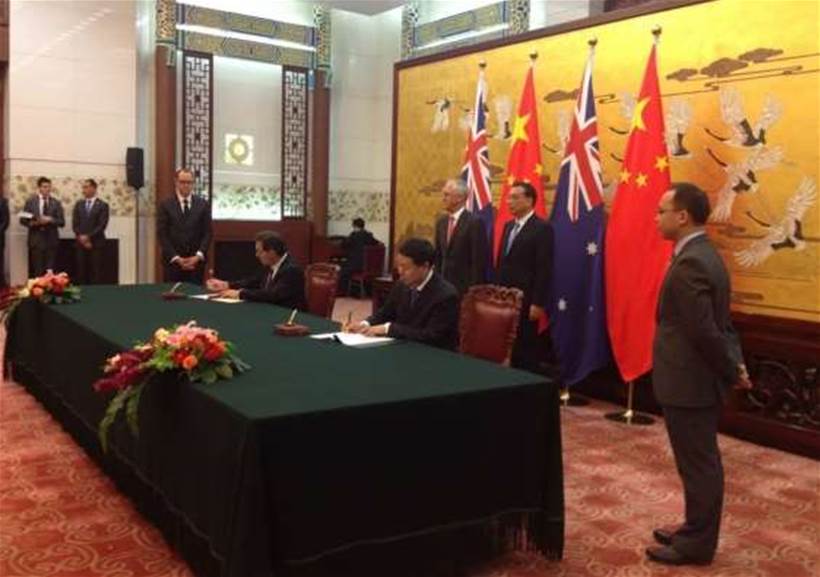Innovation partnerships worth at least $116 million have been signed between Australia and China, coinciding with Prime Minister Malcolm Turnbull’s visit to China.
The first partnership will see a new science and technology precinct – called the Torch Innovation Precinct – built at UNSW in Sydney.
It is the first such partnership outside China and has the backing of Chinese companies as well as the Ministry of Science & Technology’s ‘Torch’ high tech industry development program.
An initial $30 million – of an expected $100 million total – investment has been secured by eight Chinese companies to support Australian research in advanced materials, biotechnology, energy, and environmental engineering.
“The first group of UNSW Torch industry partners will initially set up incubator spaces on the Kensington campus in close proximity to researchers and a growing community of student entrepreneurs,” the University said in a statement.
“Investment is expected to build to $100 million, enabling the construction of a new purpose-built, globally connected UNSW innovation precinct by 2025.”
UNSW president and vice-chancellor Professor Ian Jacobs said the partnership was a “global first and has the potential to reset the Australia-China bilateral relationship and boost the nation’s innovation system”.
“This is about future proofing our national competitiveness by strategically positioning Australia as China becomes the world’s largest investor in R&D and the 21st century’s science and technology superpower,” he said.
In a speech, Malcolm Turnbull revealed a $10 million collaborative research agreement between the CSIRO and the Technology Transfer Hub in Foshan, which is part of the Chinese Academy of Sciences.
“Both are going to focus on commercialising close to market clean energy and biotechnology solutions,” Turnbull said.
A further six joint research centres are to be established and funded for three years by the Australia-China Science and Research Fund (ACSRF).
The total funding commitment is $5.95 million and the centres will be operated each by an Australian and Chinese university or research institute.
They will look at areas as diverse as sustainable mineral processing and agriculture through to how data might help manage coastal pollution.
Turnbull said China and Australia “are natural and complementary partners”.
“Our vision is to build on [our] long standing links to make innovation a key part of that relationship,” he said.
Turnbull said one of the focuses of his visit to China had been improving research collaboration and commercialisation – which also forms part of the Government’s $1.1 billion National Innovation and Science Agenda (NISA).
In growing collaboration between China and Australia, Turnbull hoped to bridge that.
He also indicated he would put intellectual property resources in China that could help Australian firms wanting to do business.
“We will also establish here, as part of that focus on collaboration and commercialisation, a new Australian intellectual property counsellor to be based in Beijing,” he said.
“That’ll strengthen our engagement with China on intellectual property issues and support Australian companies as they do business here, taking advantage of the new opportunities presented through the China-Australia Free Trade Agreement.”









